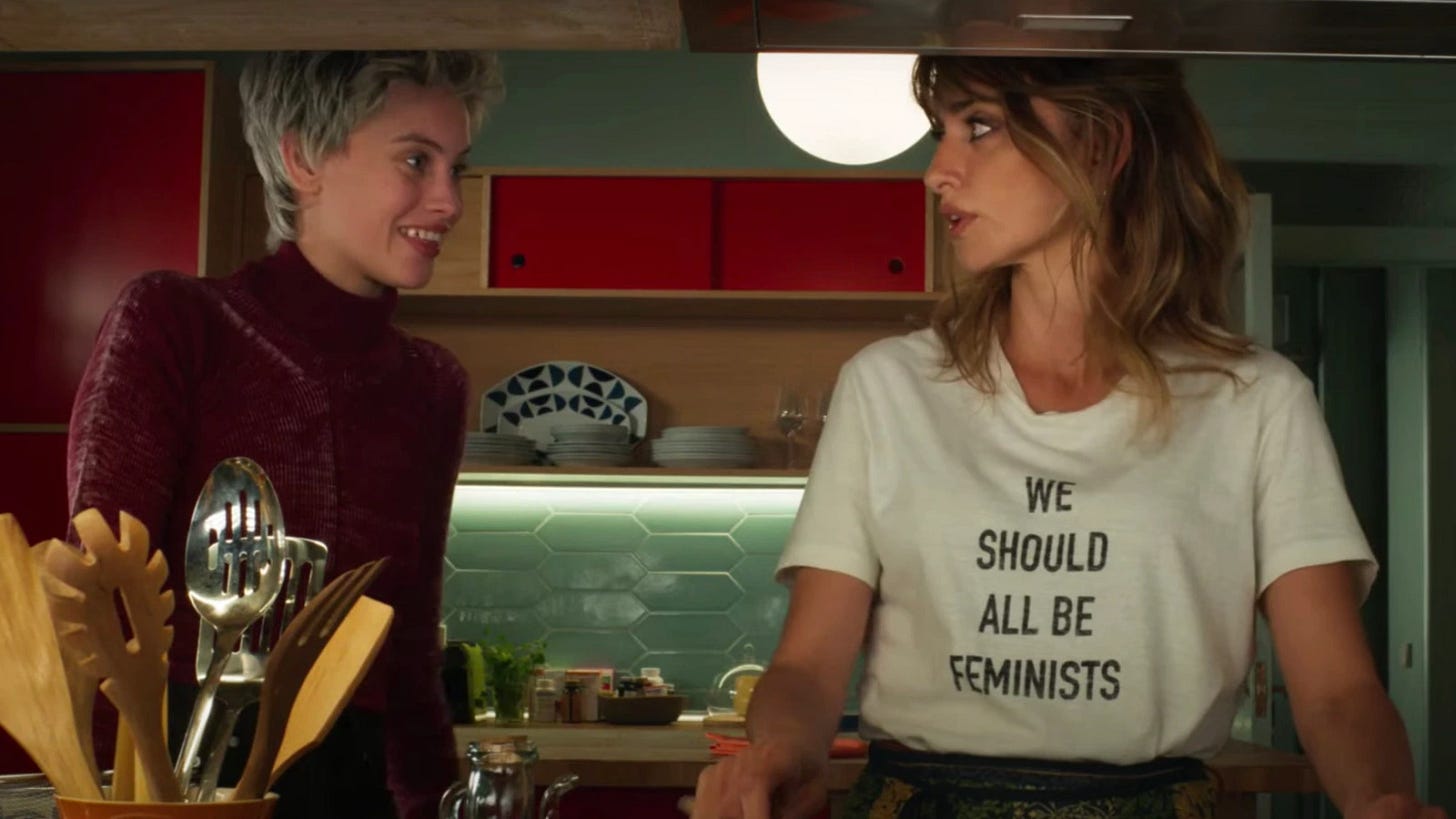Parallel Mothers
Truth (Part 1 of 4: Truth and the Spanish Civil War)

I have this list on Letterboxd that I come back to and try to grow every couple of weeks: History (?) via Movies. (Send me suggestions please.) It started as a joke between friends: entertaining movies like 300 and Gladiator hardly qualify as accurate depictions of historical events, but they do give us some idea, however faint, of a period of time and what it may have been like.
For the month of April, I propose a similar endeavor, but with a more earnest aim: 4 movies, all very different, all in the service of a theme: Truth and the Spanish Civil War. We’ve all heard some form of this adage: “Those who cannot remember the past are condemned to repeat it”. (Credited to George Santayana, though surely hard to accurately trace.) The times we live in often feel like the result of failed history lessons. How often do we ask: What lessons could be taught in order for a society to continue developing in a healthy manner and for the benefit of all people living in that society? Surely there are many answers to this question; one subject I find myself thinking of often is the Spanish Civil War.
While the films I’ll be recommending in April are no substitute for opening a history book1, they are entertaining, smart, and full of insight into the lessons we might learn from a terrible chapter in a nation’s history. I hope they pique your interest to read deeper into history, as they’ve done for me.
Sometimes I can’t believe how lucky we are that we get to watch a director like Pedro Almodóvar work in real time. I imagine it’s what watching Fellini may have been like years ago, if Fellini had worked in a period where film wasn’t as ubiquitous. (The ‘50s and ‘60s had fewer options for entertainment than we have today.) Almodóvar’s tone and style tend to waver so dramatically between films, that sitting down to watch one is always an enjoyable exercise in being off-balance. What will happen? What could happen?
The first things that may strike you while watching Madres Paralela (Parallel Mothers Pedro Almodóvar, 2021), and that may strike you when watching any Almodóvar, are the colors. This is a director that does not take color for granted, and while one could easily sit through his films in an escapist reverie, to zoom out for even a second is to recognize a style of composition in film that is seldom matched.
Penélope Cruz plays Janis, a photographer living in Barcelona who has connected with Arturo (Israel Elejalde), an excavator who is helping her get a years-long project off the ground: To excavate the believed site of her family members’ execution and burial at the hands of fascists in the Spanish Civil war. Janis and Arturo work well together and in short order, they consummate their attraction. As they do, we get a well timed cut to the large white curtain of the bedroom window slowly billowing out as the heat they’re making within rushes to escape.
Swiftly we move to the hospital, about 9 months later, where Janis and Ana (Milena Smit) meet as they are both about to have their children. We learn more about their distinct backgrounds, and get a glimpse of the circumstances that brought Ana to where she is. After the children are born, they retreat to their separate lives. We learn via one of the slickest edits to a flashback I’ve ever seen, that infidelity and single motherhood permeates the lives of our characters. Some more time passes. Then, Ana shows up at Janis’s home and delivers a bolt of lightning to the plot.
From here the story only gets more complicated, in ways that feel at once dramatic but never unbelievable. To reveal any more would be to spoil an excellent roller coaster. Almodóvar has the uncanny ability to elevate melodrama to another plane, much like Hitchcock did with suspense. At no point are we sure what will happen next, despite the film never betraying a sense that we are watching rational adults make the best decisions they can given their circumstances.
I imagine people watching Parallel Mothers will fall into two camps, and have two different experiences based on their camp:
The world of Parallel Mothers is a civilization idealized; well-to-do working professionals, hip urban environments, colors that pop (did I mention Almodóvar already?), beautifully designed homes, pedestrian plazas; but the conflict at the heart of this film is as instinctual as humanity on any level. It felt rare to me to be so rapt with attention while watching a movie from home. There are dozens of things around us that could distract us at any moment, increasing the burden of the movie to keep us in our seats. It’s some form of witchcraft that Almodóvar makes intrigue seem so easy; Before we have a chance to get bored with proceedings, Parallel Mothers pulls us deeper into the mess.
An incredible score (check it out on Spotify for a fun preview of the tone of the film, or to make your morning walk more intense) carries this movie through every development. (One of the few Oscars I felt strongly about was Parallel Mothers winning best score, but alas, it wasn’t meant to be.) Every scene and line of dialogue serves the juggled themes of truth, family, duty, love, history, adulthood, and childhood. At one point, Ana’s abuela sums up a feeling of the movie elegantly and in a way that makes the weight of the film fully land: “We couldn’t be together in life, so at least we’ll be together at the end.”
Parallel Mothers
Written and Directed by Pedro Almodóvar
2021
123 Minutes
Spanish
Citation Needed

